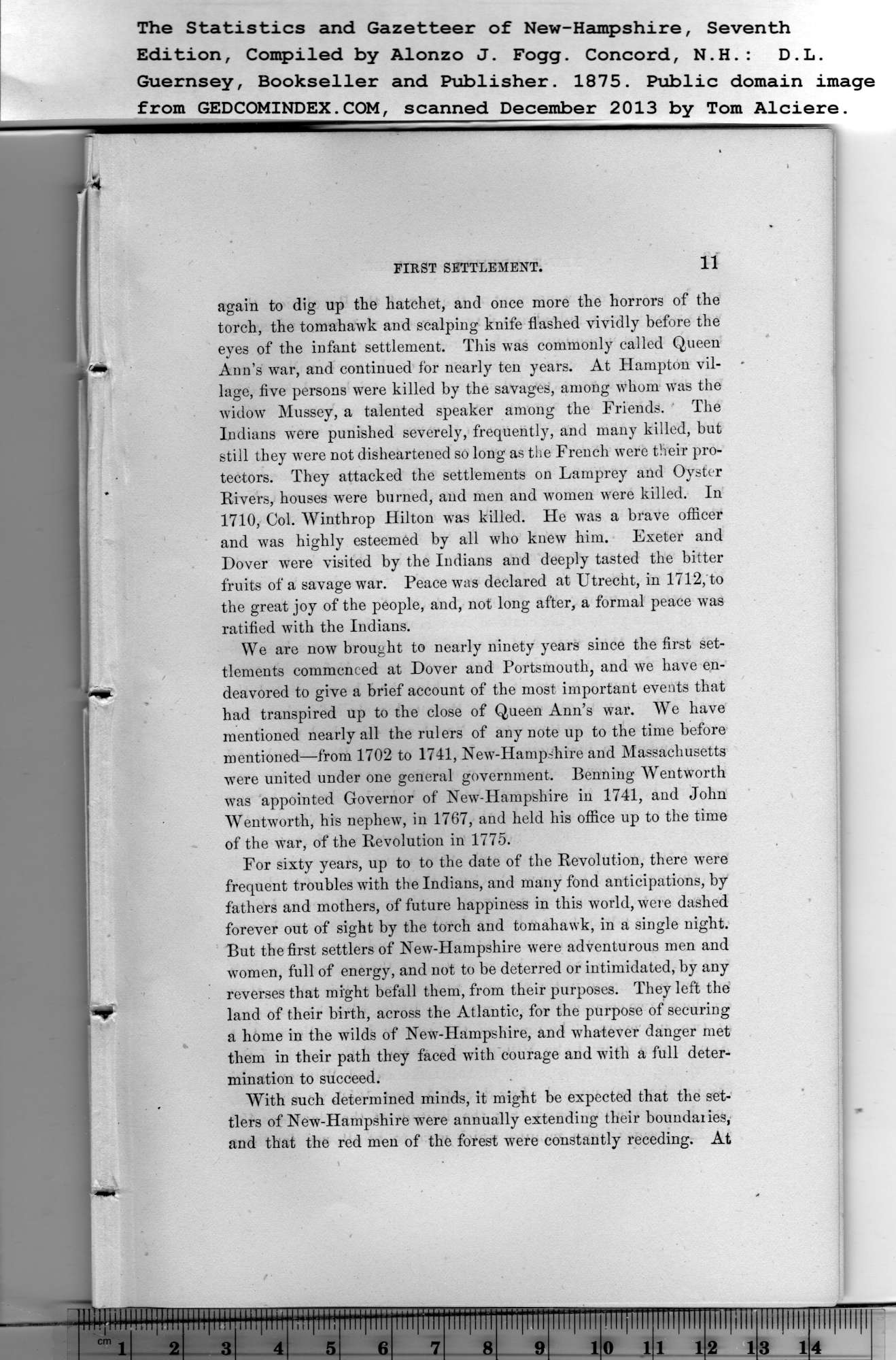|
FIRST SETTLEMENT. 11
again to dig up the hatchet, and once more the horrors of the
torch, the tomahawk and scalping knife flashed vividly before the
eyes of the infant settlement. This was commonly called Queen
Ann’s war, and continued for nearly ten years. At Hampton vil-
lage, five persons were killed by the savages, among whom was the
widow Mussey, a talented speaker among the Friends. The
Indians were punished severely, frequently, and many killed, but
still they were not disheartened so long as the French were their pro-
tectors. They attacked the settlements on Lamprey and Oyster
Rivers, houses were burned, and men and women were killed. In
1710, Col. Winthrop Hilton was killed. He was a brave officer
and was highly esteemed by all who knew him. Exeter and
Dover were visited by the Indians and deeply tasted the bitter
fruits of a savage war. Peace was declared at Utrecht, in 1712, to
the great joy of the people, and, not long after, a formal peace was
ratified with the Indians.
We are now brought to nearly ninety years since the first set-
tlements commenced at Dover and Portsmouth, and we have en-
deavored to give a brief account of the most important events that
had transpired up to the close of Queen Ann’s war. We have
mentioned nearly all the rulers of any note up to the time before
mentioned—from 1702 to 1741, New-Hampshire and Massachusetts
were united under one general government. Benning Wentworth
was appointed Governor of New-Hampshire in 1741, and John
Wentworth, his nephew, in 1767, and held his office up to the time
of the war, of the Revolution in 1775.
For sixty years, up to to the date of the Revolution, there were
frequent troubles with the Indians, and many fond anticipations, by
fathers and mothers, of future happiness in this world, were dashed
forever out of sight by the torch and tomahawk, in a single night.
But the first settlers of New-Hampshire were adventurous men and
women, full of energy, and not to be deterred or intimidated, by any
reverses that might befall them, from their purposes. They left the
land of their birth, across the Atlantic, for the purpose of securing
a home in the wilds of New-Hampshire, and whatever danger met
them in their path they faced with courage and with a full deter-
mination to succeed.
With such determined minds, it might be expected that the set-
tlers of New-Hampshire were annually extending their boundaries,
and that the red men of the forest were constantly receding. At
PREVIOUS PAGE ... NEXT PAGE
This page was written in HTML using a program written in Python 3.2
|
